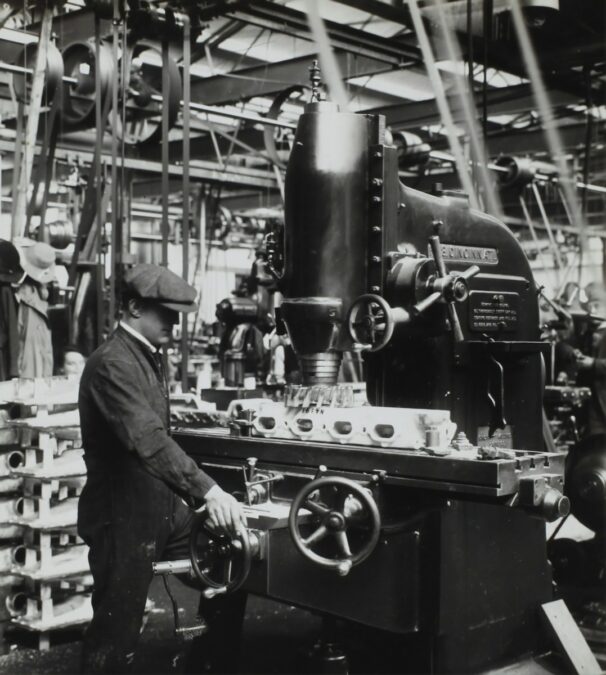Exploring the Essence of History: A Perspective Aligned with Leopold Von Ranke
Unveiling Historical Truths helps us to learn new knowledge. The words of Leopold Von Ranke, “You have reckoned that history ought to judge the past and to instruct the contemporary world as to the future. The present attempt does not yield to that high office. It will merely tell how it really was,” stand as a beacon guiding our exploration of historical truths. In this article tailored for business executives, mid-level managers, and entrepreneurs, we delve into the realms of change management, executive coaching services, effective communication, and the impact of Generative Artificial Intelligence. Let us embark on a journey to understand the essence of history and its relevance in shaping the contemporary business landscape.
Leopold von Ranke, a pioneering figure in 19th-century historiography, championed a meticulous and objective approach to uncovering historical truths. His emphasis on primary sources and a commitment to accuracy sought to elevate history from subjective narratives to a more scientific discipline.
Ranke’s methodology prioritized archival research and firsthand accounts, aiming to reconstruct events as they truly unfolded. In his pursuit of historical objectivity, he argued for the historian’s duty to faithfully represent the past without imposing personal biases.
Central to Ranke’s vision was the idea that history should be presented as it was, striving to capture the unique spirit of each historical period. He advocated for a vivid portrayal of events that allowed readers to experience history as if they were present during those moments.
Ranke’s influence extended to the belief that every era possessed its own distinct character, and the historian’s task was to comprehend and convey this uniqueness. This approach contributed to a more nuanced understanding of historical developments, moving beyond oversimplified narratives.
Through Ranke’s lens, history became a dynamic tapestry of interconnected events, and his method inspired generations of historians to engage in rigorous research and analysis. The chronicling of historical truths, according to Ranke, required a commitment to impartiality and a meticulous scrutiny of sources.
The legacy of Leopold von Ranke endures in the ongoing quest for historical accuracy and the recognition that the study of history is an ever-evolving, scholarly endeavor. His insistence on rigor and fidelity to evidence has left an enduring impact on the discipline, shaping how we perceive and interpret the unfolding saga of human history.
Change Management: Learning from Historical Narratives and Unveiling Historical Truths
Change management echoes the sentiment expressed by Ranke – to tell how it really was. By studying historical narratives of organizational change, businesses can glean insights into what worked and what didn’t. Understanding the past allows for informed decision-making, ensuring that the present attempts at change yield successful outcomes and propel organizations toward a brighter future.
Executive Coaching Services: Navigating the Historical Landscape of Leadership
Within the landscape of executive coaching services, the guidance provided by historical accounts becomes invaluable. By delving into the experiences of past leaders, executives can gain a nuanced understanding of leadership challenges and triumphs. Ranke’s approach to telling how it really was aligns with the transparency needed in coaching sessions, fostering personal and professional growth.
Effective Communication: Crafting Narratives Grounded in Truth
The importance of effective communication resonates through Ranke’s emphasis on telling how it really was. In the business world, transparent communication is a cornerstone for building trust and fostering collaboration. By drawing inspiration from historical accuracy, businesses can craft narratives that stand the test of time, contributing to long-term success.
Generative Artificial Intelligence: Transforming Historical Insights into Strategic Advantage
The influence of Generative Artificial Intelligence adds a modern dimension to Ranke’s perspective. By leveraging AI to analyze historical data, businesses can extract valuable insights that inform strategic decisions. The ability to tell how it really was becomes a data-driven advantage, allowing organizations to navigate the complexities of the business landscape with precision.
Leadership and Management Skills: Drawing Wisdom from Historical Realities
The development of leadership and management skills finds resonance in Ranke’s approach. By acknowledging historical realities, leaders can cultivate a well-rounded skill set that addresses the challenges of the present and prepares for the future. Ranke’s emphasis on truth aligns with the authenticity required for effective leadership in the contemporary business environment.
Conclusion: Embracing the Unfiltered Truths of Business History
In conclusion, Leopold Von Ranke’s perspective on history aligns seamlessly with our exploration of business dynamics. As we navigate the realms of change management, executive coaching services, effective communication, and Generative Artificial Intelligence, let us embrace the unfiltered truths of business history. By acknowledging how it really was, organizations can pave the way for a future built on transparency, authenticity, and strategic wisdom.
#ChangeManagement #ExecutiveCoaching #EffectiveCommunication #GenerativeAI #LeadershipSkills
#ManagementConsulting #ProjectManagement























